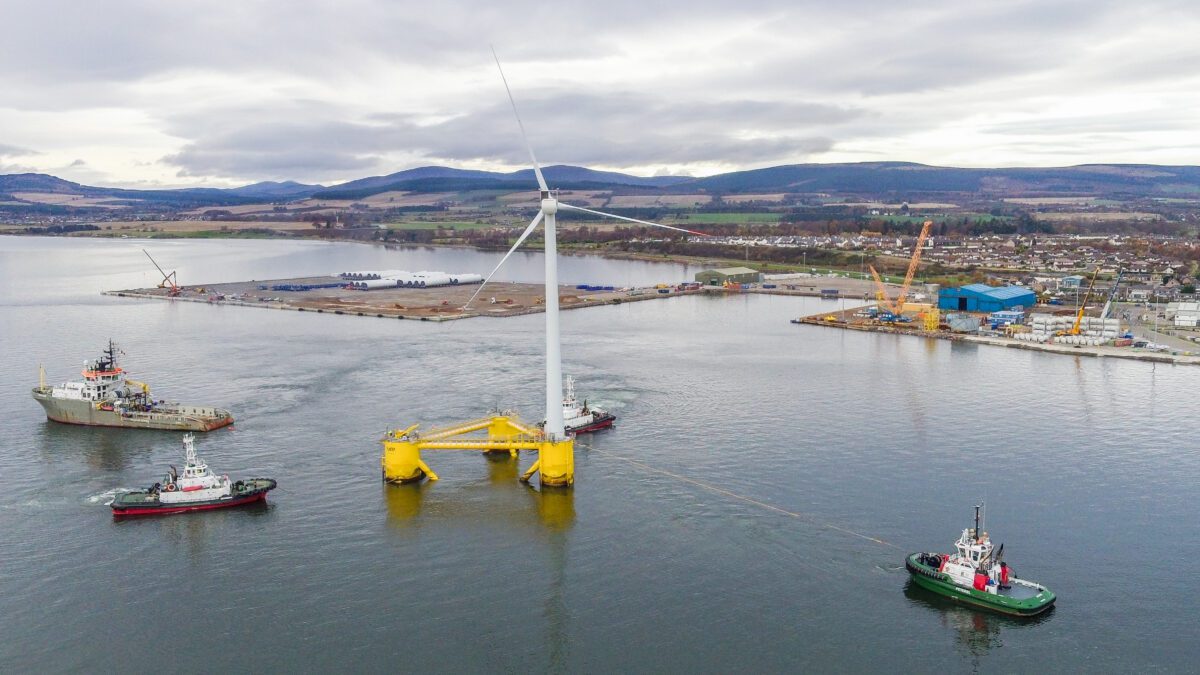In the midst of the debate over climate change, fossil fuels and renewables, one factor has perhaps been overlooked: how Scotland’s new green freeports can act as a catalyst for the change needed to drive a net-zero revolution and deliver a lucrative clean energy economy.
When the Scottish and UK governments set out their vision of green freeports for Scotland, supporting the ‘just transition’ and climate change targets of both was a necessity.
These targets are extremely challenging. For example by 2030 the aim is for Scotland to generate 50 per cent of its overall energy consumption from renewable sources, and by 2050 to decarbonise our energy system almost completely. The Scottish Government also aims to deliver a minimum 20GW installed onshore wind capacity by 2030.
Inverness and Cromarty Firth Green Freeport (ICFGF) is a partnership of key regional businesses, offshore wind and floating offshore wind operators and developers, public sector organisations and academic bodies committed to playing a pivotal role in meeting these targets.
ICFGF has the opportunity to deploy the infrastructure, natural resources and workforce that can significantly contribute to the deployment of the 30GW target for ScotWind and 5GW Innovation and Targeted Oil and Gas (INTOG) fixed and floating offshore wind capacity by 2035. In the same timeline, 5GW of power generation can be used to drive forward our ambitions to generate green hydrogen for ammonia and e-methanol. We estimate that the combined output of green electrons and green molecules supported by the green freeport can influence a reduction in emissions totalling a massive 150 million tonnes of CO2 over 25 years.
ICFGF began life under its pre-green freeport guise of Opportunity Cromarty Firth, a historic uniting of disparate organisations with extensive experience in renewables. It recognised that such was the size and scope of the work needed to be undertaken to turn Scotland into a clean energy nation, no single operation could do it alone. A pooling of resources, infrastructure and technologies was needed to meet the scale of what was required.
To achieve an energy revolution you needed an organisation that can provide the spark. ICFGF is that organisation. Here is why:
It has the best assets in the UK working together in Ardersier Port, Port of Cromarty Firth and Port of Nigg which will facilitate offshore windfarm construction. Together they boast one of the largest construction and assembly facilities in Europe, with deep water quaysides, dry docks and laydown areas with high ground bearing capacity. There is also Port of Inverness which has served the onshore wind industry from many years and lies within the region’s largest population centre.
ICFGF is in a ‘hydrogen valley’ – a geographical area where several applications involved in the process of hydrogen combine into an integrated ecosystem delivering huge momentum in the market so security of supply can be established, allowing those who want access to clean energy to have the confidence to switch their infrastructure.
These include the North of Scotland Hydrogen Programme, a multi-partner initiative to develop a green hydrogen hub to produce, store and distribute hydrogen to the region, Scotland, the UK and Europe.
ICFGF has the natural asset of the Cromarty Firth’s deep, sheltered waters. These waters, together with the ports, have the capacity to provide stacking and wet storage of vast quantities of industrial material needed for the upsurge in offshore wind and floating offshore wind construction.
This upsurge is being driven by the recent Crown Estate Scotland ScotWind leasing, which signalled a £26bn investment in new offshore windfarms. The majority are on the doorstep of the Cromarty Firth. Among lease winners were international developers BlueFloat Energy and Ørsted UK, both of which have backed ICFGF to meet the scale of production needed.
Finally ICFGF has the Highland supply chain, skilled expertise and resources to build the pipeline of jobs required to deliver the huge CO2 reductions and drive us towards a clean energy economy.
This is the green revolution the country needs. Our green freeport can be the catalyst that creates a prosperous, clean energy future for Scotland and the UK.



